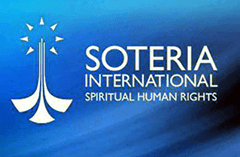
OSCE Office for Democratic Institutions and Human Rights
Human Dimension Implementation Meeting 2017.
Working session 9: Tolerance and non-discrimination
15 September 2017
The Individual Responsibility for a Harmonious Society
It is a major obligation of all OSCE member states to combat discrimination and substantial resources are invested to diminish the symptoms of discrimination and non-tolerance. Still, discrimination and non-tolerance continue to challenge our societies.
Discrimination and non-tolerance are often considered to be the offspring of inner conflicts in society, and it is the inner conflicts of individuals which are reflected in the outer conflicts of society.
Soteria International would like to suggest that we consider the inner conflicts of individuals as the basis for discrimination and non-tolerance.
Finding coherence in one’s own being is the only way to reach a deep sense of meaning in life and harmoniously integrate in society. A society without discrimination and non-tolerance is possible only when individuals become actively aware of their feelings, thoughts, words, and actions. Ultimately, only inner transformation will ensure proper fulfilment in life, allowing peace and harmony to come, thereby, opposing discrimination and non-tolerance at all levels.
Addressing the outer conflicting situation as the base of discrimination and non-tolerance disregards the seed inside the individual, always awaiting the right conditions to grow into outer conflict. Conflicts can only be addressed at the individual level, by engaging the individual as a whole, centred in the heart.
Validated nowadays by the newest discoveries of science, this new paradigm of conflict management is based on the concept of Concordia or coherence in the hearts. In the ancient western philosophy, Pascal considered the heart as a cognitive faculty, able to unify key operations of will and intellect without finally collapsing into either. The French author and intellect René Guénon who was an influential figure in the domain of metaphysics referred to the Heart as the centre through which a world can open to all that transcends it. By his two incompleteness theorems, Gödel shows that in any formal axiomatic system there are truths that cannot be proven by the means provided only within this system and it is always necessary to transcend it. When we apply these considerations to the issue of solving conflicts it becomes obvious that it is not possible to do so only at the level of the mind where conflicts appear. The mind has to be transcended and it can be done just by engaging the heart into this process.
The experience demonstrated by humankind so far indicates that often legality prevails over righteousness, but when things are considered just as an exclusive result of legislative decisions, human rights can miss the ethical and moral dimensions.
The Latin term Concordia captures this concept of the opening of hearts, in which each and every individual shares their experiences and the way in which the difficulties they, face make them grow. Seen in this new perspective, the individual seeds of conflict, discrimination and non-tolerance become, first of all, invaluable opportunities to grow.
Very often, conflicts, discrimination, and non-tolerance stem from diversity and from the dichotomy created by the idea of being right or wrong in our beliefs. However, it is in fact very important to embrace diversity and to understand it in an inclusive and superior nature. We all have the same origin as human beings and diversity is nothing else than a great opportunity for enrichmen.
Instead of blaming others for being different, it is important to understand that others actually help us see ourselves better. Fighting what we see in others is actually fighting against ourselves. When we are able to embrace diversity we are able to embrace others. Happiness is created, among other ways, through the act of sharing.
The violation of freedom of conscience expressed in civil society through government restrictions or through popular hostility against freedom of religion or belief are a significant factor of tensions, conflicts, and wars.
Recommendations:
Soteria International recommends for the OSCE member states to consider freedom of conscience as the foundation of the whole human rights edifice. Negligence of this foundation makes the whole concept of human rights fragile. In order to construct such a foundation, we must instate educational programs for children and adults, in order to make everyone aware that we are responsible for our lives, for the environment, and for harmony in society, and that change begins with our own example.





